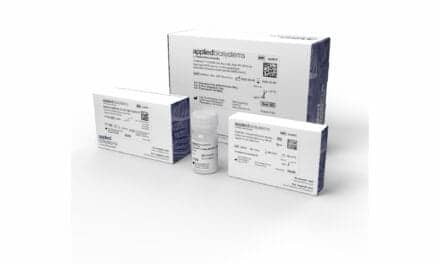In the past 20 years, awareness of rare diseases has grown significantly as a result of efforts by well-organized and well-funded rare disease patient organizations. According to the European Medicines Agency, more than 6,000 rare diseases have now been identified. Around the world, it is estimated that such rare diseases affect approximately 300 million to 350 million people, half of whom are children.
According to GlobalData, London, a new alliance of healthcare and technology organizations has been formed to address issues related to such rare diseases—and along the way, to revolutionize the healthcare market. Named the ‘Global Commission to End the Diagnostic Odyssey for Children,’ the alliance brings together the European Organization for Rare Diseases (EURORDIS); Microsoft; Rare Diseases Europe, a rare disease patient organization; and Shire, a global biotechnology company focused on rare diseases. The alliance signals the arrival of tech companies into the healthcare space, says GlobalData.
The aim of the organization is to address the diagnostic challenges associated with rare diseases, to provide support, and to shorten the time it takes for patients and their families to reach a conclusive diagnosis, as it often takes 5 to 10 years for rare disease patients to receive a correct diagnosis.
“This is a powerful alliance capable of developing game-changing diagnostic tools and initiatives for rare disease patients, allowing the use of optimal therapies which will present opportunities for drug developers,” says Alessio Brunello, MSc, a neurology and ophthalmology analyst at GlobalData. “The accurate and early detection of diseases, as well as their differentiation from other disorders, are essential for both proper disease management and improvement of the treatment rate.”
According to GlobalData, the Global Commission is a multidisciplinary group of experts with the creativity, technological expertise, and commitment required to develop a roadmap to help the rare disease field shorten the current multiyear diagnostic journey, and to make a major difference in the lives of millions of children and their families. The roadmap will include recommendations to solve key problems presently standing in the way of timely diagnoses.
The commission’s recommendations will focus in three areas: providing high-level policy guidance for governments and healthcare systems to help achieve better health outcomes for rare disease patients; improving physicians’ ability to identify and diagnose patients with a rare disease in order to begin care and treatment; and empowering patients and their families to play a more active role in their healthcare.
The Global Commission is expected to publish its roadmap in early 2019. The roadmap will include the findings of its collective work with patients, their families, and other expert advisors to help drive solutions to improve the diagnosis of rare diseases.
“This initiative could be the first of many alliances and partnerships in 2018, as several other tech companies also attempt to revolutionize the healthcare market,” concludes Brunello.
For more information, visit GlobalData.




